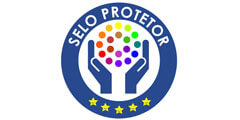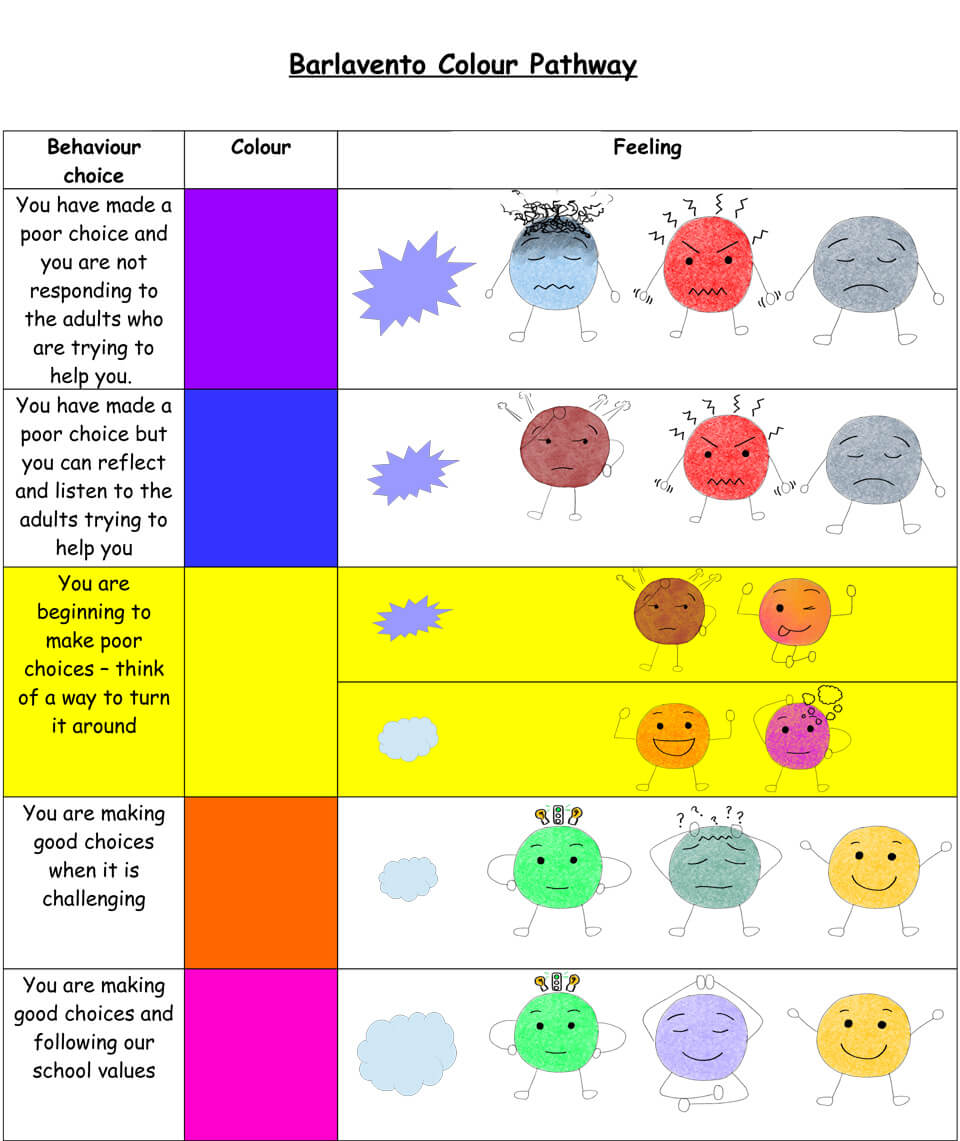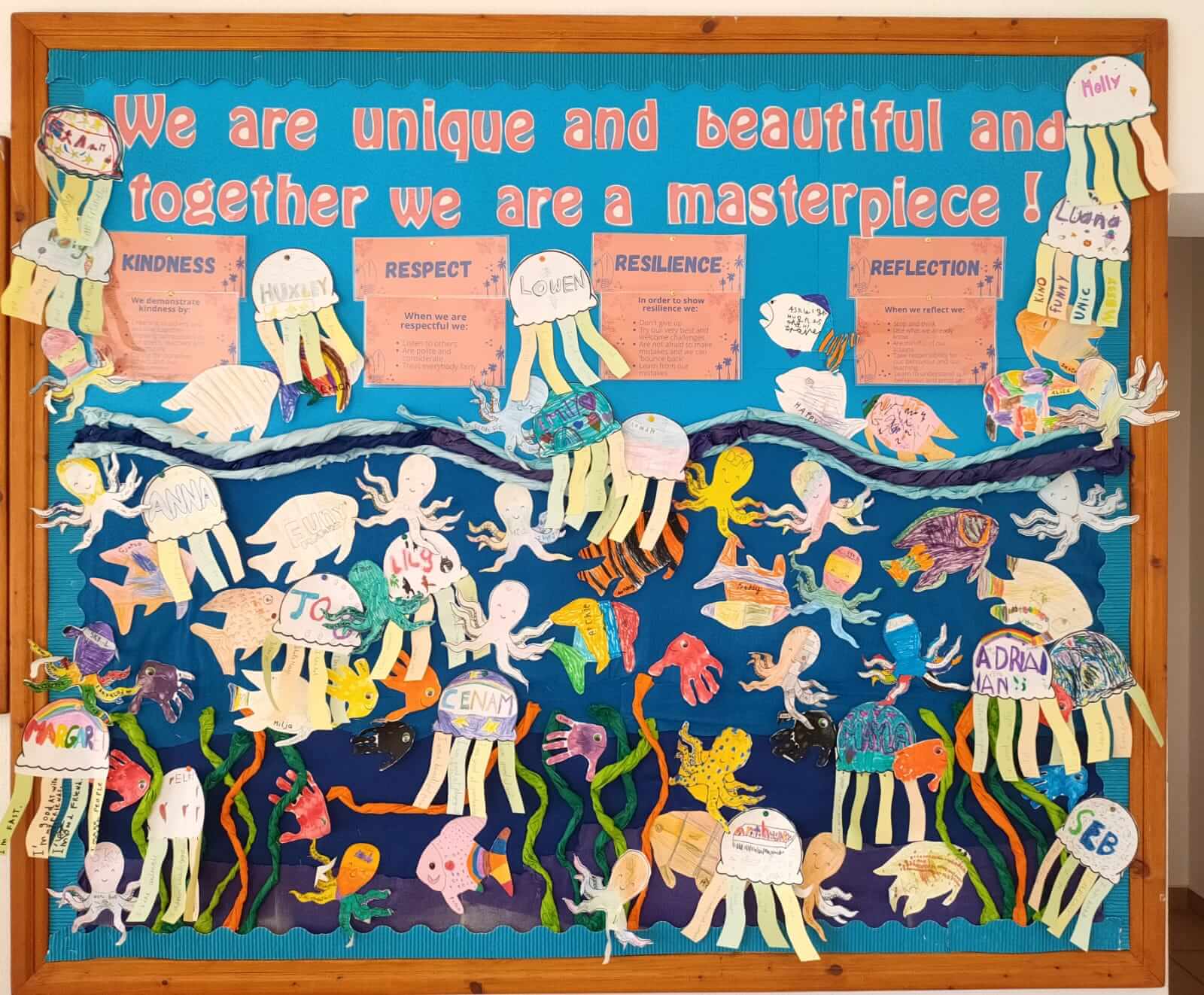Behaviour for learning
Our approach
We aim to promote a positive approach to behaviour where children are encouraged to take responsibility for themselves, so that they can become thoughtful and independent. We celebrate and recognise positive behaviour as we believe that this will motivate children to aim higher in their achievements and develop an ethic based on kindness, compassion and cooperation. We recognise each child as a unique individual and focus on nurturing and supporting them through emotional literacy and creating a positive classroom culture.
The Barlavento Colour Pathway
We understand that behaviour is a form of communication often expressed through our emotions. To support our children, we have developed tools of communication and reflection, such as the Barlavento Colour Pathway. The children use mindfulness to communicate, regulate and express emotional patterns, as well as reflect on their behaviour and cultivate resilience. We use a range of positive behaviour support strategies to celebrate and recognise our children’s achievements such as Class Dojo, ‘Gem of the Week’, ‘Diamond Awards’, tokens in the jar and celebration assemblies.
Our teachers also use the CALM steps to respond rather than react to behaviour, developed by emotional intelligence (EQ) educator Ginette Lalieu.
The Positive Pathways approach
Alongside our positive approach to behaviour at Barlavento, our staff are training in and implementing an exciting new approach to behaviour: ‘The Positive Pathways’. This holistic research driven approach led by UK educator Jen Foster draws on positive psychology and makes explicit links between behaviour, emotions and learning. This approach:
- supports the well-being of our children through practical and effective strategies which provide proactive emotional support such as calm corners and emotion check-ins
- aims to cultivate emotional literacy through mindfulness and self-reflection
- is based on intrinsic motivation rather than extrinsic reward systems
- focuses on community and collaboration over competition
- recognises each child as a unique individual and recognises and celebrates their achievements
- uses the visual concept of a ‘pathway’ to create collaborative class destinations and explore the journey and obstacles that may arise
- Further develops social awareness providing children with lifelong skills and tools



















